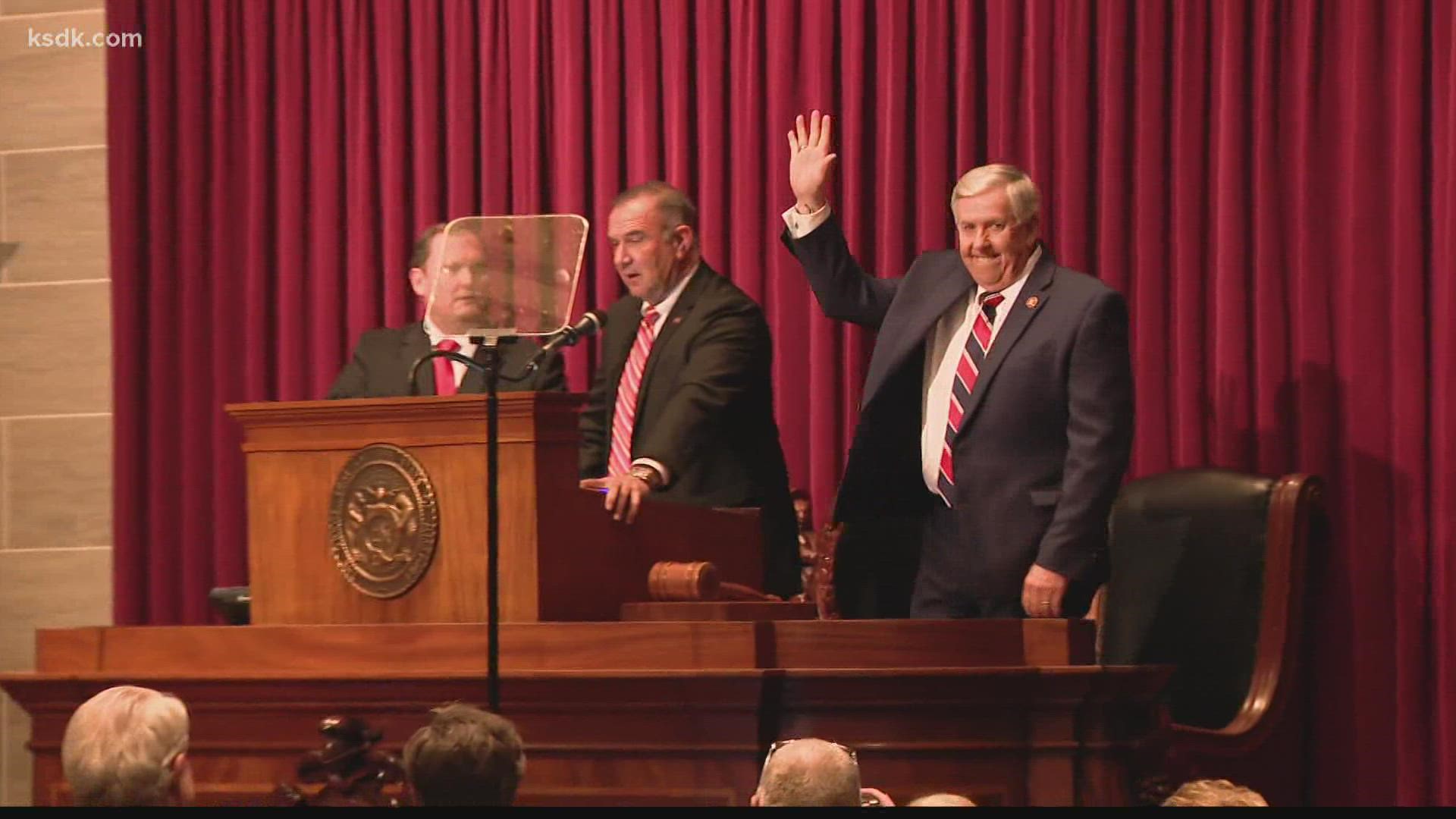JEFFERSON CITY, Mo. — Missouri's Republican Gov. Mike Parson in his State of the State address Wednesday proposed spending hundreds of millions of dollars to boost child care services and teacher wages as the state battles the latest COVID-19 surge.
Parson asked the GOP-led Legislature for $722 million to prop up child care centers and close to $22 million for matching grants to raise teacher salaries to a minimum of $38,000 a year. He praised most Missouri schools for staying open throughout the pandemic and said teachers, such as his daughter, should be thanked and paid more.
“Missouri is currently ranked 50th in United States for starting teacher pay and half of our new teachers leave the profession by their fifth year,” he said. “This is unacceptable, and we must do better.”
Parson delivered his speech in a nearly full House chamber, where Republicans sat without masks while many Democrats wore them.
At least nine lawmakers have come down with COVID-19 since the session begin Jan. 5, though that number may be higher because not all absent lawmakers have provided a reason. Last year, Parson’s speech was shifted at the last moment from the House to the Senate chamber amid COVID-19 concerns.
Parson largely left it up to local health departments to decide how to address the pandemic when the virus first spread to the state.
While Parson supports COVID-19 vaccinations and lauded state vaccination rates, he also repeated his opposition to health mandates Wednesday. He credited the state’s economic rebound and 3.5% unemployment rate in November to his decision never to enact statewide business closures.
“I don’t support and have never supported mandates,” he said. “Missourians can rest assured that my position will not change.”
Parson said nearly 95% of residents age 65 and older and 73% of adults have received at least one shot. For more context, closer to 86% of seniors and 65% of adults are fully vaccinated, according to the state's health department.
About 58% of Missouri residents eligible for the vaccine — meaning children who are at least 5 years old and adults — are fully vaccinated, compared to 67% nationally, according to the Centers for Disease Control and Prevention.
Of Missouri’s total population, 55% are fully vaccinated compared to the national rate of 63%.
“While there will always be endless critics to tell us how we could have done it better, the facts are we were the ones in the arena,” Parson said. “We made the tough decisions and never cowered to the challenge.”
Parson’s budget proposal includes $400 million in American Rescue Plan Act aid for personal protective equipment, emergency staff, vaccines, testing and treatment.
Kansas City Sen. Lauren Arthur, in a statement, pushed to raise the state's vaccination rate.
“It’s time leaders listen to those who are vaccinated and ready to move forward,” she said. “The vaccines work. They are the best protection against hospitalizations and death. They are free. They are widely available. And they are safe.”
Parson's top priorities for the 2022 legislative session include a 5.5% pay raise for state workers to be implemented as soon as February. He asked lawmakers for an extra $91 million to bring state worker pay to a minimum of $15 an hour for the remainder of this fiscal year, which ends in May.
For a full year, the total cost of a statewide worker pay raise is estimated at $218 million.
Parson's administration has advocated for the pay bump in part to address worker shortages at mental health hospitals, prisons and other state institutions that serve vulnerable residents.
State Budget Director Dan Haug said there are about 4,500 vacant positions that Parson's administration considers vital to fill.
Parson’s total budget request to lawmakers is a whopping $46.7 billion, bolstered by roughly $2.8 billion in federal American Rescue Plan Act coronavirus relief funding. The current fiscal year budget is about $35 billion.
Roughly $955 million would go to increase pay rates for nursing homes and care for people with disabilities under Parson’s budget, plus more than $106 million for home- and community-based services for people with disabilities and the elderly.

